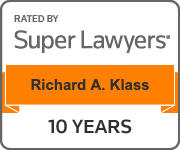The court in Denisco v Uysal, 195 AD3d 989, 990-91 [2d Dept 2021] found that the plaintiff/client failed to plead factual allegations sufficient to show the claims were not merely speculative and conclusory, holding:
On a motion to dismiss pursuant to CPLR 3211 (a) (7), the court must afford the complaint a liberal construction, accept the facts as alleged in the complaint as true, accord the plaintiff the benefit of every possible favorable inference, and determine only whether the facts as alleged fit within any cognizable legal theory (see Leon v Martinez, 84 NY2d 83, 87-88 [1994]).
“A cause of action to recover damages for legal malpractice requires proof of three elements: (1) that the defendant failed to exercise that degree of care, skill, and diligence commonly possessed and exercised by an ordinary member of the legal community, (2) that such negligence was the proximate cause of the actual damages sustained by the plaintiff, and (3) that, but for the defendant’s negligence, the plaintiff would have been successful in the underlying action” (4777 Food Servs. Corp. v Anthony P. Gallo, P.C., 150 AD3d 1054, 1055 [2017]; see Rudolf v Shayne, Dachs, Stanisci, Corker & Sauer, 8 NY3d 438, 442 [2007]). “To establish causation in a legal malpractice action, ‘a plaintiff must show that he or she would have prevailed in the underlying action or would not have incurred any damages, but for the lawyer’s negligence’ ” (Katsoris v Bodnar & Milone, LLP, 186 AD3d 1504, 1505 [2020], quoting Rudolf v Shayne, Dachs, Stanisci, Corker & Sauer, 8 NY3d at 442). “Conclusory allegations of damages or injuries predicated on speculation cannot suffice for a malpractice action, and dismissal is warranted where the allegations in the complaint are merely conclusory and speculative” (Bua v Purcell & Ingrao, P.C., 99 AD3d 843, 848 [2012] [citations omitted]; see Janker v Silver, Forrester & Lesser, P.C., 135 AD3d 908, 909-910 [2016]).
Here, even accepting the facts alleged in the complaint, as amplified by the plaintiff’s affidavit, as true, and according the plaintiff the benefit of every possible favorable inference (see Leon v Martinez, 84 NY2d at 87), the plaintiff failed to plead specific factual allegations demonstrating that, but for the defendants’ alleged negligence, there would have been a more favorable outcome on his workers’ compensation claim (see Katsoris v Bodnar & Milone, LLP, 186 AD3d 1504 [2020]; Janker v Silver, Forrester & Lesser, P.C., 135 AD3d at 910). The plaintiff’s allegations that the Judge who denied his workers’ compensation claim and/or the Workers’ Compensation Board would have credited certain evidence, including the testimony of alleged eyewitnesses, if such evidence had been presented by the defendants were speculative and conclusory (see Janker v Silver, Forrester & Lesser, P.C., 135 AD3d at 910; Cusimano v Wilson, Elser, Moskowitz, Edelman & Dicker LLP, 118 AD3d 542 [2014]).
Richard A. Klass, Esq.
Your Court Street Lawyer
#CourtStreetLawyer #LegalMalpractice #negligence
Richard A. Klass, Esq., maintains a law firm engaged in civil litigation at 16 Court Street, 28th Floor, Brooklyn, New York. He may be reached at (718) COURT●ST or RichKlass@courtstreetlaw.comcreate new email with any questions.
Prior results do not guarantee a similar outcome.
© 2021 Richard A. Klass




